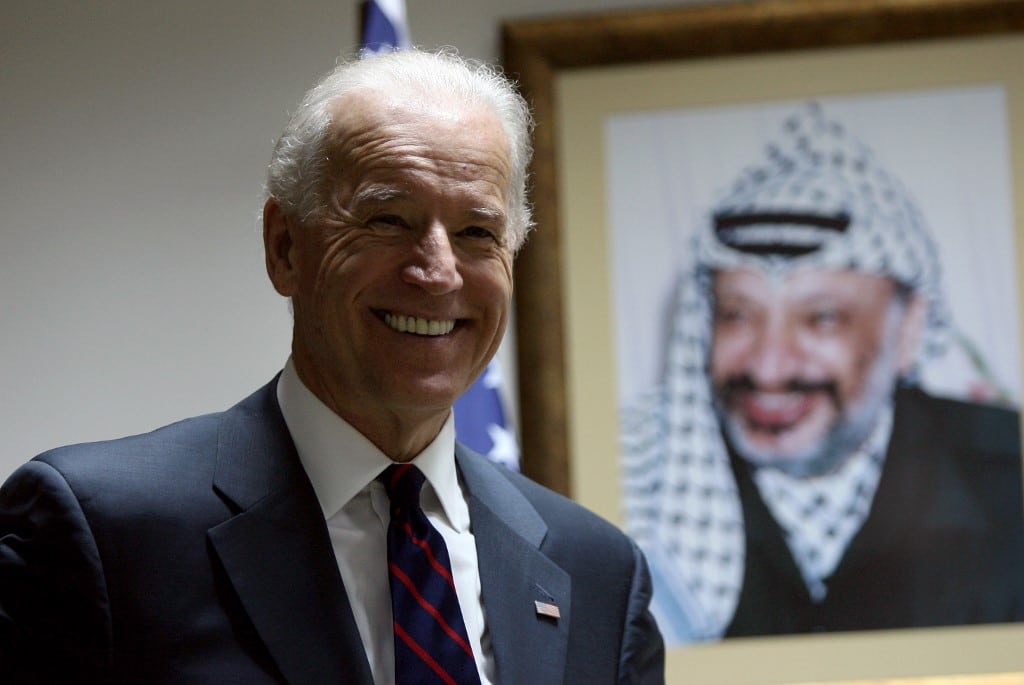
Majed Kayali
More than any other US administration, Trump’s administration took severe actions against the Palestinians and their case. This administration did not follow the steps of the previous conventional US stance in this domain. All previous American administrations were unanimous in not recognizing the Israeli occupation that took place in 1967. In line with this traditional US stance, Washington used also not recognize the Israeli annexation of Jerusalem. In addition, the US stance adopted recognizing the Palestinian Liberation Organization (PLO) as the sole representative of the Palestinian people and brokered peace negotiations between Palestinians and Israel. That stance was firm for the administrations of George H.W. Bush, Bill Clinton, George W. Bush and Barack Obama. However, Trump’s administration avoided committing to all of these standpoints during the past four years.
Instead of that, Trump’s administration pioneered what is known as “the deal of the century”. This deal is merely based on adopting the Israeli’s positions. More specifically, it supports the nationalist and religious right in Israel under the leadership of prime minister Benjamin Netanyahu. For many times, this administration tried to deprive Palestinian refugees from their rights. In line with that approach, Trump’s administration stopped the financial support provided to the United Nations Relief and Works Agency for Palestine Refugees (UNRWA).
Interestingly, this administration described the Israeli settlement in West Bank as “legitimate”. Moreover, it closed PLO’s office, abandoned brokering peace process and dedicated its efforts to normalize relations between some Arab countries and Israel without forcing Tel Aviv to withdraw from the occupied lands (1967). That came as an attempt to put pressure on Palestinians and force them to submit to Israeli’s demands.
At this point, we should ask ourselves a couple of questions: Should Palestinians feel relieved by the end of Trump’s administration and the beginning of Biden’s administration? Will Biden re-evaluate all policies that his predecessor adopted? And if yes, to what extent? In an attempt to answer these questions, we are supposed to start from the fact that the United States consider Israel an essential and entrusted allay. In fact, Israel is on the top of the US interests in the Middle East. All previous US administrations prioritized Israel’s interests above any other party, whether these parties were the Palestinians or Arabs.
Based on what I said above, we are not supposed to bet on a change in the attitude of the US administration or its policy. It seems that the new president Biden won’t totally change the policies admitted by his predecessor concerning fundamental issue. Any change, probably, would be limited to symbolic aspects such as re-providing the financial aid to UNRWA (that is dedicated to refugees). This might also include resuming the financial aid provided to the Palestinian National Authority and reopening PLO’s office in Washington. In addition, expectations may include resuming negotiations between the two parties. However, these positions will probably neither include canceling the US recognition of Jerusalem as the capital of Israel nor moving the US embassy from it. Moreover, the coming administration will not change positions concerning settlements or borders issues.
Based on that, Biden’s administration might say, for instance, that it wants Jerusalem to be the capital for both sides in an attempt to weaken the Palestinian’s position on this issue. By this, the Biden’s administration will not cancel its decision of moving the American embassy to Jerusalem. Concerning the settlements and borders issues, the new American administration might put pressures on the Palestinians to resume negotiations with Israel as usual. This means forcing them to enter the vortex of negotiations again. Consequently, such positions might be a way to force the Palestinian leadership to lower its demands. This approach might also be a manner to justify the positions that PA take in the eyes of the Palestinian people as the PA suffers from incompetence and marginalization.
In conclusion, the Palestinian leadership will face a situation where there will be a cosmetic change in the American policies. The tone of voice will change from the tough one that Trump’s administration used. Rather, Biden’s administration will adopt a soft tone of voice.
Furthermore, Biden will use diplomacy instead of sticking to putting pressure on Palestinians like Trump. Nevertheless, the policy will keep to be the same as all US administrations show a steady attitude in this regard.
For many years to come, the Palestinian leadership will face challenges that resulted from Trump’s administration policies. This includes lowering the status of the Palestinian case in Arab’s list of interests, especially that many Arab regimes have normalized relations with Israel. The Palestinian leadership should notice this situation and deal with the challenges that result from it in a prudent manner. After all, it is the weaker side and it shouldn’t be left alone facing Israel and its colonial, settlement and racist policies.
To sum things up, the Palestinian leadership is currently the weakest side in this game. It actually suffers severely from the absence of Arab protection and the disintegration of the Arab regime.
DISCLAIMER
The opinions expressed in this publication are those of our bloggers. They do not purport to reflect the opinions or views of Fanack or its Board of Editors.


